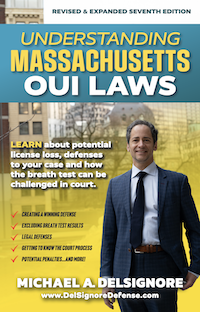Should I Enter a Plea of not Guilty at my OUI Arraignment?
Many people wonder how they can enter a plea of “not guilty” when they are technically guilty of an OUI in Massachusetts. At the arraignment stage, you do not yet have the police report so you do not have sufficient information to make an informed decision on your case.
While you may feel as though you shouldn’t have driven, and you may even agree that the officer was right in arresting you, it does not mean that you will be convicted of operating under the influence of alcohol.
an attorney to review the case.
The attorney’s focus will not be on whether you did something wrong or whether you had 6-7 drinks over a short period of time- instead the focus will be on what evidence the Commonwealth has that is admissible and will come into evidence at trial. That is the only relevant consideration and will govern whether you should accept a plea or take a case to trial.
How does the constitution protect my not guilty plea?In many cases, the government’s evidence is not strong because the government cannot force you to testify. The Fifth Amendment states that defendants cannot be forced to testify against themselves.
This means that the government:
- Will not know exactly how many drinks you consumed that night
- The details of what happened prior to your arrest
Therefore, these contextual details will not come into evidence.
So when we look at the case, we are looking at:
- What evidence of erratic driving does the Commonwealth have?
- What observations does the office have that demonstrate you were under the influence of alcohol?
- Are these observations specific to you or were they generic i.e. slurred speech, bloodshot eyes etc.
- Does the officer’s police report seem to have any substance to it- is it more than his/her subjective opinion?
- How did you do on the field sobriety tests?

As an experienced OUI lawyer, I look at the field sobriety tests with background knowledge of how the tests should be scored and what circumstances can influence the results. I am considering the following questions:
- Will the commonwealth make any significant headway into proving that you were operating under the influence when the officer testifies about your performance on the field sobriety tests?
- Was there anything unusual about the case?
Once I have taken all these factors into consideration, I can suggest whether you should take the case to trial or accept a plea.
In no case will you or I have this information at the arraignment. At arraignment, you will not have access to the police video, the police report and you will not have had time to meaningfully discuss your case with an attorney so there is nothing wrong with entering a not guilty plea. In fact, many criminal cases result in a plea but almost all are not resolved at arraignment.
What happens if I enter a guilty plea?This is considered a change of plea, from a not guilty to a guilty plea- also known as an admission.
Remember…At your arraignment, you should enter a not guilty plea and not feel as though you are committing perjury or are being dishonest with the court. Instead, you should feel that you are exercising your constitutional rights and are attempting to make an informed, educated decision. Most judges, if someone does try to admit to a charge at the arraignment, will advise the person to slow down, speak to an attorney, highlight the strengths and weaknesses of their case and look at the evidence.
You can contact me at 781-686-5924 or 508-455-4755 to discuss your case and what it means to enter a plea at the arraignment if you have additional questions.
 East Bridgewater DUI Lawyer DelSignore Law Home
East Bridgewater DUI Lawyer DelSignore Law Home
